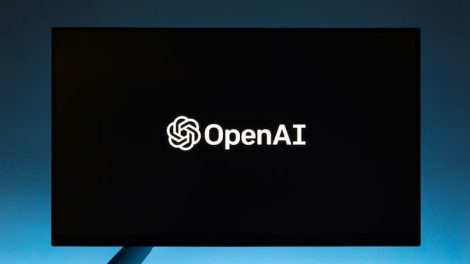The competition in the search engine industry has never been more intense, with artificial intelligence driving rapid advancements in the way users access and interact with information. Among the contenders, OpenAI’s ChatGPT has garnered significant attention with its conversational AI and integrated search capabilities. Despite the promise of offering a new kind of search experience, the struggles of ChatGPT Search to rival the established dominance of Alphabet’s Google highlight the complexity of creating a truly competitive alternative in this highly specialized field.

When discussing search engines, it’s impossible to ignore Google’s enduring supremacy. As the default gateway for billions of users globally, Google has cultivated an unparalleled ecosystem of tools, data, and algorithms. Its vast repository of indexed information, paired with continuous refinements to its ranking systems, ensures that users receive the most accurate and relevant results in milliseconds. The level of precision and reliability that Google provides remains unmatched, a reality that is only underscored when newer entrants like ChatGPT Search falter under the weight of user expectations.
ChatGPT’s search functionality has attempted to distinguish itself by incorporating conversational AI into the process, offering responses that mimic human dialogue rather than presenting a list of links. While this approach appeals to users seeking a more interactive experience, it introduces limitations in scope and accuracy. Unlike Google, which leverages a web crawler-based approach to indexing virtually the entire internet, ChatGPT Search relies heavily on pre-trained data and a limited ability to fetch real-time information. This gap in comprehensiveness becomes evident when comparing search outcomes side by side.
One of the core challenges for ChatGPT Search lies in its lack of a robust indexing system. Google’s PageRank algorithm, combined with continuous crawling of web pages, ensures that its database remains up-to-date. This allows Google to deliver results that reflect current events, emerging trends, and newly published content. Conversely, ChatGPT Search struggles to maintain this level of real-time accuracy, often leading to outdated or incomplete answers. For users seeking information in rapidly evolving contexts, this discrepancy can be a significant drawback.
To illustrate the disparity between the two search engines, consider the following comparison of key performance indicators:
| Feature | Google Search | ChatGPT Search |
|---|---|---|
| Real-Time Information | Comprehensive | Limited or Delayed |
| Indexed Data Size | Billions of Pages | Restricted by Model Scope |
| Search Speed | Instantaneous | Variable |
| Response Type | Links and Summaries | Conversational Responses |
| Customization Options | High | Low |
Another critical factor contributing to Google’s superiority is its mastery of ad-based revenue generation while maintaining user trust. Google’s ad placement strategies are informed by sophisticated algorithms that integrate seamlessly into search results without compromising user experience. This balance ensures that businesses achieve visibility while users still receive relevant and reliable answers. ChatGPT Search, in contrast, has yet to establish a comparable monetization model, which not only limits its financial sustainability but also raises questions about the platform’s long-term viability.
In addition to monetization, Google’s advanced understanding of search intent is a significant advantage. Through years of machine learning refinement, Google can interpret nuanced queries, handle ambiguous language, and even anticipate follow-up searches. This depth of comprehension enables Google to cater to a diverse user base, from casual inquiries to complex research needs. ChatGPT Search, while capable of engaging in detailed conversations, often struggles to discern the subtle distinctions in intent, leading to misaligned or generic responses.
The reliance on artificial intelligence also poses challenges for ChatGPT Search in maintaining factual accuracy. While Google’s algorithms rank information based on credibility, authority, and relevance, ChatGPT’s AI may generate responses that, although conversationally fluent, lack proper verification. This inconsistency can erode user trust, particularly in scenarios where accurate information is critical, such as health advice or financial guidance.
Alphabet’s continued investment in artificial intelligence further cements its position at the forefront of search innovation. From incorporating AI-powered features like Google Lens to enhancing its natural language processing capabilities with BERT, Google demonstrates a relentless commitment to staying ahead of the curve. In comparison, ChatGPT’s reliance on pre-trained models limits its ability to evolve dynamically, a shortcoming that becomes increasingly apparent as user demands grow more complex.
The integration of AI into search engines has undoubtedly reshaped the expectations of users. As conversational interfaces become more prevalent, the question arises: Can any challenger truly rival Google’s dominance? The struggles of ChatGPT Search suggest that while alternative approaches may offer novelty, they must also meet the stringent benchmarks of accuracy, comprehensiveness, and reliability that users have come to expect.
OpenAI’s efforts to refine ChatGPT Search are not without merit. The platform’s conversational format introduces an element of accessibility that traditional search engines may lack, particularly for users unfamiliar with keyword-based queries. Additionally, ChatGPT’s ability to engage in follow-up discussions adds a layer of interactivity that could appeal to specific demographics. However, these strengths alone are insufficient to displace Google, whose ecosystem extends far beyond search to include services like Gmail, Google Maps, and YouTube.
Looking ahead, the success of any search engine, including ChatGPT Search, will depend on its ability to balance innovation with the practical needs of users. This entails not only expanding the scope of indexed information but also addressing issues of accuracy, monetization, and intent comprehension. While the integration of conversational AI is a step forward, it is only one piece of a much larger puzzle.
The challenges faced by ChatGPT Search underscore the enduring strength of Google as the benchmark for search engine excellence. Alphabet’s commitment to innovation, coupled with its decades of experience in understanding user behavior, ensures its continued dominance in the market. For OpenAI and other competitors, the road ahead will require not only technological advancements but also a deep understanding of what users truly value in a search experience. Only then can they hope to compete effectively in a field where Google remains the undisputed leader.










Add Comment